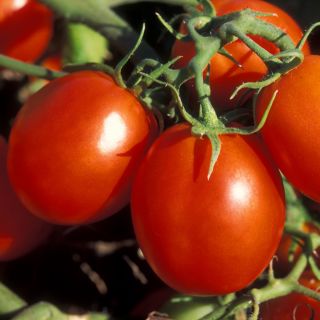Stress
Nine Ways to Relieve Stress by Gardening
Plant a garden to cultivate a calmer mind.
Posted April 1, 2013

Gardening is a popular hobby that doubles as an outstanding stress reliever. Recently, I asked three experts for advice on maximizing the stress-busting potential of gardening. Here’s what they told me about how to cultivate calmness along with the tulips or tomatoes.
Keep it a hobby, not a chore.
Just as with golfing or yoga, some people enjoy gardening and others don’t. Even if you’re in the former group, however, it’s important to ask yourself whether you like it a little or a lot, and then plan the size and maintenance requirements of your garden accordingly. “Be realistic about how much time and energy you have for gardening,” says Anna Ranieri, PhD, MBA, a psychotherapist and career coach in the San Francisco Bay area. She notes that planting a quarter-acre when all you really want to do is deadhead a few geraniums may lead to more stress, not less.
Make friends with nature.
“A garden is a place where we can slow down and reconnect with the natural world the way our ancestors did all day, every day,” says Kristen K. Brown, author of The Happy Hour Effect: 12 Secrets to Minimize Stress and Maximize Life. Research has shown that spending time in nature can help restore your attention, relax your body, and revive your mood.
Leave your phone inside.
Don’t let phone calls, texts, emails, and social media intrude on your gardening time. “So many days are filled with multitasking from dawn to dusk,” says Ranieri. “Make this a time when you have only one thing to do, and immerse yourself in the experience.”
Be mindful of the moment.
A garden offers a feast for the senses: verdant leaves, aromatic blossoms, chirping birds, squishy earth. Make a deliberate choice to soak it all up. “Be aware of what’s happening right here and now—what’s in front of your eyes and at the touch of your fingertips—rather than what’s in the memo you’ll write tomorrow,” says Ranieri. By becoming fully absorbed in the moment-to-moment experience, you’re practicing mindfulness—a proven way of reducing stress.
Repeat a garden mantra.
“There’s this lovely cadence you can get into when weeding,” says P. Annie Kirk, BSW, MLA, a landscape architect and owner of Red Bird Restorative Gardens. The same can be said of digging, raking, and many other garden and lawn care activities. Kirk says that some of her clients pair the repetitive movement with a repeated mantra or prayer. Others combine it with yoga breathing exercises. Either strategy can activate the parasympathetic nervous system—the body system that counteracts the physiological changes brought on by stress.
Cultivate your creativity.
“Is your garden wild and woolly, or is it precise and elegant? Does it use your signature colors? We all need to express ourselves creatively, and gardening is one way to do that,” says Ranieri. So get imaginative with a palette of plants. Research shows that engaging in a creative pastime can be an effective stress control strategy.
Connect with neighbors.
Although many people savor peace and quiet while gardening, others appreciate company. If you’re working in your front yard, it’s natural for neighbors to wave hello or stop and chat about the weather. “It’s an opportunity for social connectedness,” says Kirk. For apartment dwellers, tilling a plot at the local community garden can serve a similar purpose.
Welcome wildlife visitors.
You can invite birds, butterflies, and other wildlife visitors into your garden as well. The National Wildlife Federation offers detailed tips on what to plant and how to provide a safe and friendly habitat for the birds, insects, and other animals you want to attract. Their presence adds another dimension to help captivate your attention and enrich your experience.
Revel in a job well done.
“Gardening gives you a sense of accomplishment,” says Brown. “It can lead to great satisfaction when those first blooms of spring emerge from the fall-planted bulbs you weren’t sure would grow or when the first ripe tomato is ready for picking.” The beauty you add to your home or the fresh food you put on your table is tangible proof of time well spent.
Linda Wasmer Andrews is a writer who specializes in health, psychology, and the intersection between the two. Follow her on Twitter. Like her on Facebook.




